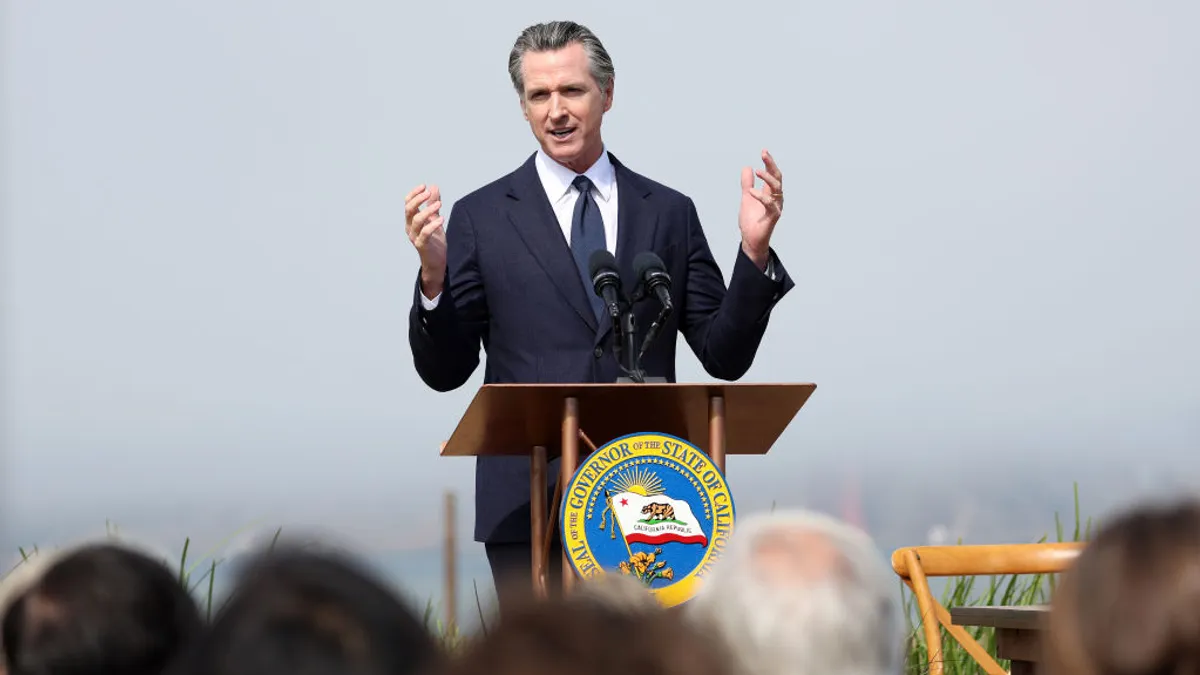Dive Brief:
- California Gov. Gavin Newsom said his revised financial state budget for 2024-2025 included funding necessary for the California Air Resources Board to implement a pair of climate disclosure bills — SB 253 and SB 261 — approved last year.
- The governor unveiled his updated budget proposal for the upcoming year on Friday, noting that the bills were “funded in the budget” and CARB “should have the resources” to implement them during a press briefing the same day. A spokesperson from Newsom’s office confirmed to sister publication ESG Dive over email that “funding for [the bills] was included in the May Revise.”
- The Golden State also received an additional $15.9 billion in federal funding for its climate budget, an amount the governor said was “substantially higher” than what the state was projected to receive in January, when the budget was first proposed. Newsom said the funding enhanced the state’s climate budget and “substantially protected” environmental objectives outlined earlier in the year.
Dive Insight:
Though specifics of the available financing were left out from Newsom’s 49-page May budget outline, the state’s Department of Finance said on its website that more details were “coming soon.”
Newsom’s updated state budget — which he said included “no material cuts to the climate agenda” — comes after the governor left out funding for key climate-focused initiatives when he announced his initial proposal in January. At the time, Newsom proposed cuts to zero-emission transportation, construction of decarbonization programs and left out funding for CARB to implement SB 253 and SB 261 — two bills that push for more climate-related transparency from large companies.
Senate Bills 253 and 261 — both approved by Newsom in October last year — would mandate corporate disclosure of greenhouse gas emissions and climate-related financial risks, once implemented. SB 253 would require business entities operating in California with annual revenues exceeding $1 billion to report their greenhouse emissions each year, whereas SB 261 would require business entities with revenues exceeding $500 million to publicly disclose their climate-related financial risks and countermeasures.
The omission was met with much furor from climate activists and corporations alike. A coalition of California-based businesses — including Patagonia, Everlane, REI Co-op and Heirloom — penned a letter to Newsom last month asking the governor to “secure full funding for the on-time implementation” of both climate disclosure bills.
“Not only do investors, consumers, and other stakeholders deserve better information about companies’ climate-related financial risks, the businesses themselves will benefit from the standardized and consistent disclosure guidance that these policies promise,” the group said in the April 29 letter.
As many businesses are already preparing to comply with the European Union’s Corporate Sustainability Reporting Directive and the Securities and Exchange Commission’s climate disclosure rule, the companies said they “welcome the interoperability between the California laws as enacted and these other disclosure regimes.”












